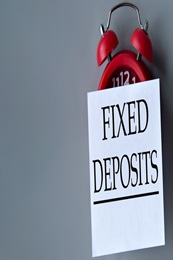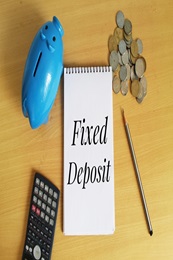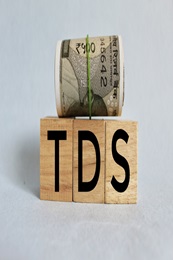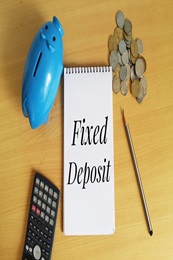ELSS or Tax-Saving Fixed Deposit (FD): Which One is More Suitable for You?
April 15, 2025
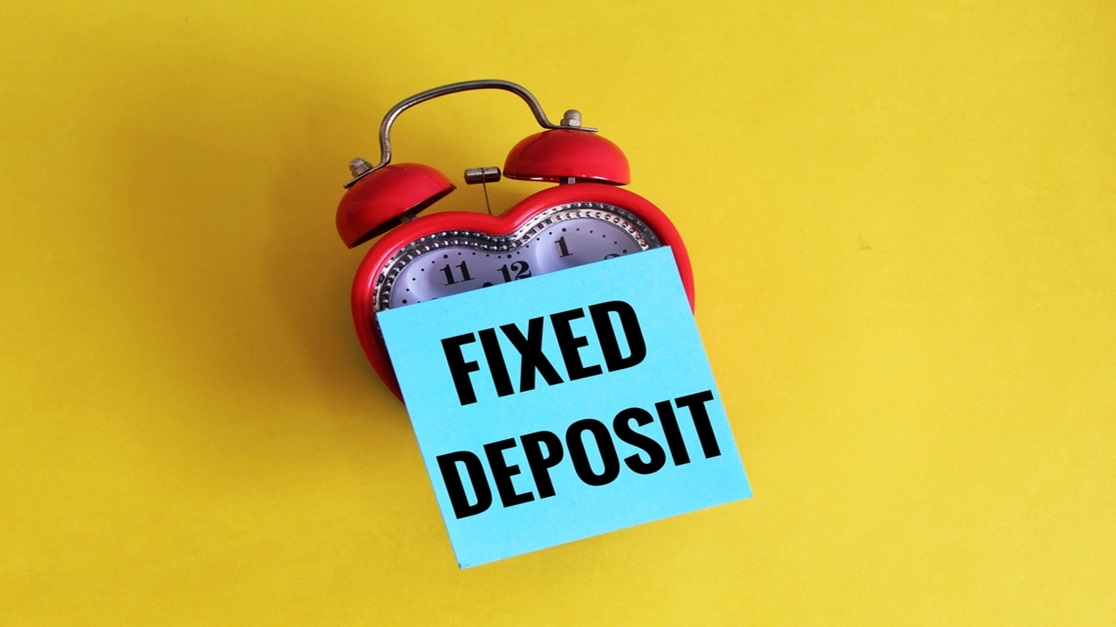
In the vibrant streets of Mumbai, two close friends, Arjun and Ravi, were planning their financial future. Both were keen on saving taxes but were confused about choosing between Equity Linked Savings Schemes (ELSS) and Tax Saving Fixed Deposits (FDs). Arjun leaned towards the market-linked ELSS, enticed by its higher returns, while Ravi, valuing security and stability, found comfort in the assured returns of Tax Saving FDs. Their discussion reflects a common dilemma many investors face today.
Understanding ELSS and Tax Saving FDs
Both ELSS and Tax Saving FDs offer tax deductions under Section 80C of the Income Tax Act, allowing up to ₹1.5 lakh in deductions. However, they differ in risk, returns, lock-in periods, and tax treatment.
Tax Saving Fixed Deposits (FDs): Stability and Guaranteed Returns
- Nature of Investment: A secure, fixed-income product offered by banks with a lock-in period of 5 years.
- Returns: Interest rates are fixed throughout the tenure. The returns is calculated based on compound interest formula, where you earn interest not only on the principal amount but also on the accrued interest, thereby generating higher returns at the time of maturity.
- Market Effect: Fixed Deposits are not linked to the market, meaning your returns are unaffected by market conditions.
- Lock-in Period: 5 years with no premature withdrawals, promoting disciplined savings.
- Taxation: Interest is taxable according to the investor’s income tax slab. Also, TDS of 10% is applicable if the interest income exceeds ₹40,000 (₹50,000 for senior citizens) in a financial year. However, the principal investment qualifies for tax deduction under Section 80C. Please note that this TDS exemption on FD interest is applicable for FY 2024-25 (till March 2025). For FY 2025-26, the current TDS exemption limit has been hiked to ₹50,000 for regular citizens and ₹1 lakh for senior citizens.
- Maximum Investment: The maximum investment amount is ₹1.5 lakh in a financial year.
- Risk Factor: Virtually risk-free, making it ideal for conservative investors who prioritize capital protection.
Equity Linked Savings Scheme (ELSS): Potential for Higher Returns with Market Risk
- Nature of Investment: Primarily invests in equity markets, subject to market volatility.
- Returns: Historically higher returns, though not guaranteed.
- Market Effect: ELSS funds are market-linked products. The returns would vary based on market performance.
- Lock-in Period: 3 years, the shortest among tax-saving instruments.
- Taxation: There is no tax on gains up to ₹1,25 lakh. Long-term Capital Gains (LTCG) over ₹1.25 lakh will be taxed at 12.5%. Short-term Capital Gains (STCG) do not apply to ELSS because of the 3-year lock-in period stipulation.
- Risk Factor: High, as returns are market-dependent.
Why Tax Saving FDs Might Be a Better Choice
- Guaranteed Returns: Unlike ELSS, FDs offer fixed and predictable returns, shielding your savings from market volatility.
- Capital Protection: Perfect for risk-averse investors who prioritise the safety of their principal.
- Better for Short-Term Planning: The 5-year lock-in ensures disciplined savings while aligning with medium-term goals like home renovations or education expenses.
- Senior Citizen Advantage: Higher interest rates for senior citizens enhance returns without additional risk.
Making the Right Choice
Arjun's choice of ELSS suits his higher risk appetite, but Ravi's preference for Tax-Saving FDs offers him peace of mind with assured returns. For investors seeking stability, capital preservation, and disciplined saving, Tax Saving FDs emerge as a more reliable option.
Final Thoughts
Both ELSS and Tax-Saving FDs serve the purpose of tax saving under Section 80C, but their suitability depends on an individual's financial goals and risk tolerance. For those valuing stability and guaranteed growth, Tax-Saving FDs remain a trusted and prudent choice.
Looking to grow your savings faster? Ujjivan SFB offers a wide range of fixed deposit products. Select the FD of your choice and take a step forward to your financial goals. Alternatively, you can browse through Ujjivan SFB product suite - our wide range of financial products are designed to make your financial life better.
FAQs
1. Can I invest in both ELSS and Tax Saving FDs in the same financial year?
Yes, you can invest in both ELSS and Tax Saving FDs within the same financial year. However, the total amount you can claim as a deduction under Section 80C is limited to ₹1.5 lakh. Diversifying your investments across both instruments allows you to balance risk and stability in your tax-saving strategy.
2. Are the returns from Tax Saving FDs guaranteed?
Yes, Tax Saving FDs offer guaranteed and fixed returns, which are predetermined at the time of investment. This makes them an ideal choice for risk-averse investors seeking steady growth without exposure to market volatility.
3. Is the interest from Tax Saving FDs tax-free?
No, the interest earned from Tax Saving FDs is fully taxable as per your income tax slab. While the principal amount qualifies for tax deduction under Section 80C, the interest is added to your total income and taxed accordingly.
4. Which is better for conservative investors: ELSS or Tax Saving FDs?
For conservative investors who prioritise capital safety and predictable income, Tax Saving FDs are the better choice. They offer assured returns without the uncertainties of market-linked investments like ELSS.
5. Can I prematurely withdraw from a Tax Saving FD?
No, premature withdrawal from a Tax Saving FD is not allowed during its 5-year lock-in period. This feature encourages disciplined savings but requires careful financial planning to ensure liquidity.
6. Is there a SIP option available for Tax Saving FDs?
No, Systematic Investment Plans (SIPs) are not available for Tax Saving FDs. SIPs are designed for market-linked instruments like ELSS, allowing regular and flexible investments.
7. Which is more suitable for short-term goals?
Tax Saving FDs are better suited for medium-term financial goals due to their fixed tenure and assured returns. ELSS is more suitable for long-term wealth creation due to market volatility.
8. Are Tax Saving FDs safer than ELSS?
Yes, Tax Saving FDs are significantly safer than ELSS. Being bank-backed fixed-income instruments, FDs provide guaranteed returns and complete capital protection, unlike ELSS, which is exposed to equity market risks.
Latest Blogs

Telangana Housing Board & KPHB Colony: A Guide to Affordable Urban Housing in Hyderabad
March 14, 2025
As Telangana continues its rapid urbanisation journey, two key housing entities—Telangana Housing Board (THB) and Kukatpally Housing Board Colony (KPHB)—have played critical roles in shaping the state's real estate ecosystem.

Does Checking CIBIL Score Frequently Lower Your Credit Points?
April 07, 2025
Imagine you're planning to apply for a home loan, a credit card, or even a car loan. Naturally, you want to ensure your CIBIL score is in good shape before proceeding.

Explained: Can NRIs Buy an Agricultural Land in India?
April 03, 2025
Real estate investment is often a top priority for Non-Resident Indians (NRIs) looking to retain strong financial ties to India.

How to Improve Your CIBIL Score from 600 to 750: A Step-by-Step Guide
April 02, 2025
Your CIBIL score is like your financial reputation—banks check it before approving loans or credit cards. If your score is hovering around 600, you might face difficulties in securing credit or may get loans with higher interest rates.

What Happens When You Leave Your Savings Account Unused?
April 01, 2025
Imagine waking up one day to find that your hard-earned money is locked away and inaccessible. Sounds stressful, right? This is precisely what happens when you leave your Savings Account inactive for too long.

